For the ZIS community – at home in Zurich and around the world
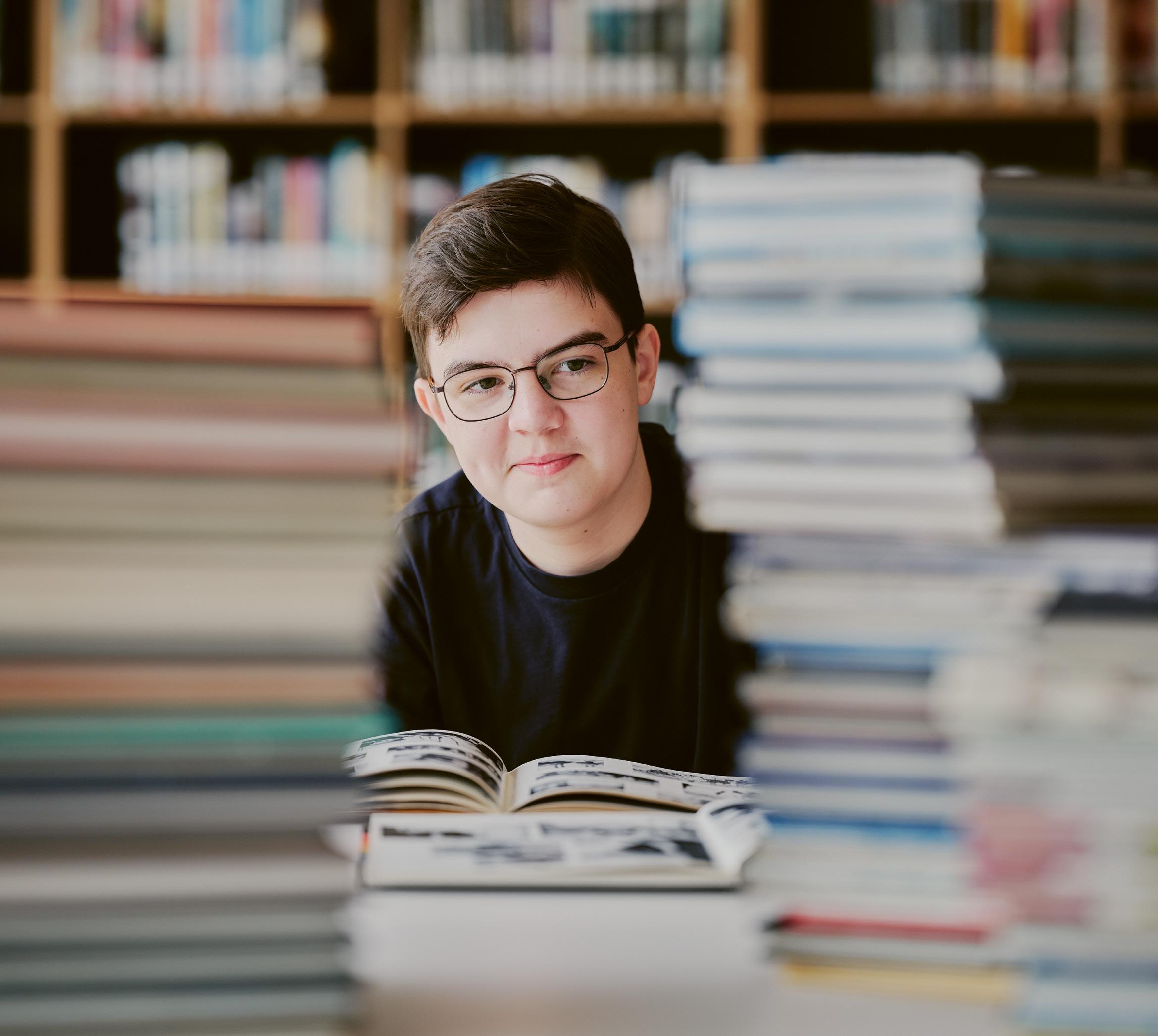
• Are you ready to be a non-exec?
• Big data: quality not quantity
• Why doing the right thing matters
• Silvesterlauf: more than a race
• ZIS community around the world Winter 2024/25

For the ZIS community – at home in Zurich and around the world

• Are you ready to be a non-exec?
• Big data: quality not quantity
• Why doing the right thing matters
• Silvesterlauf: more than a race
• ZIS community around the world Winter 2024/25




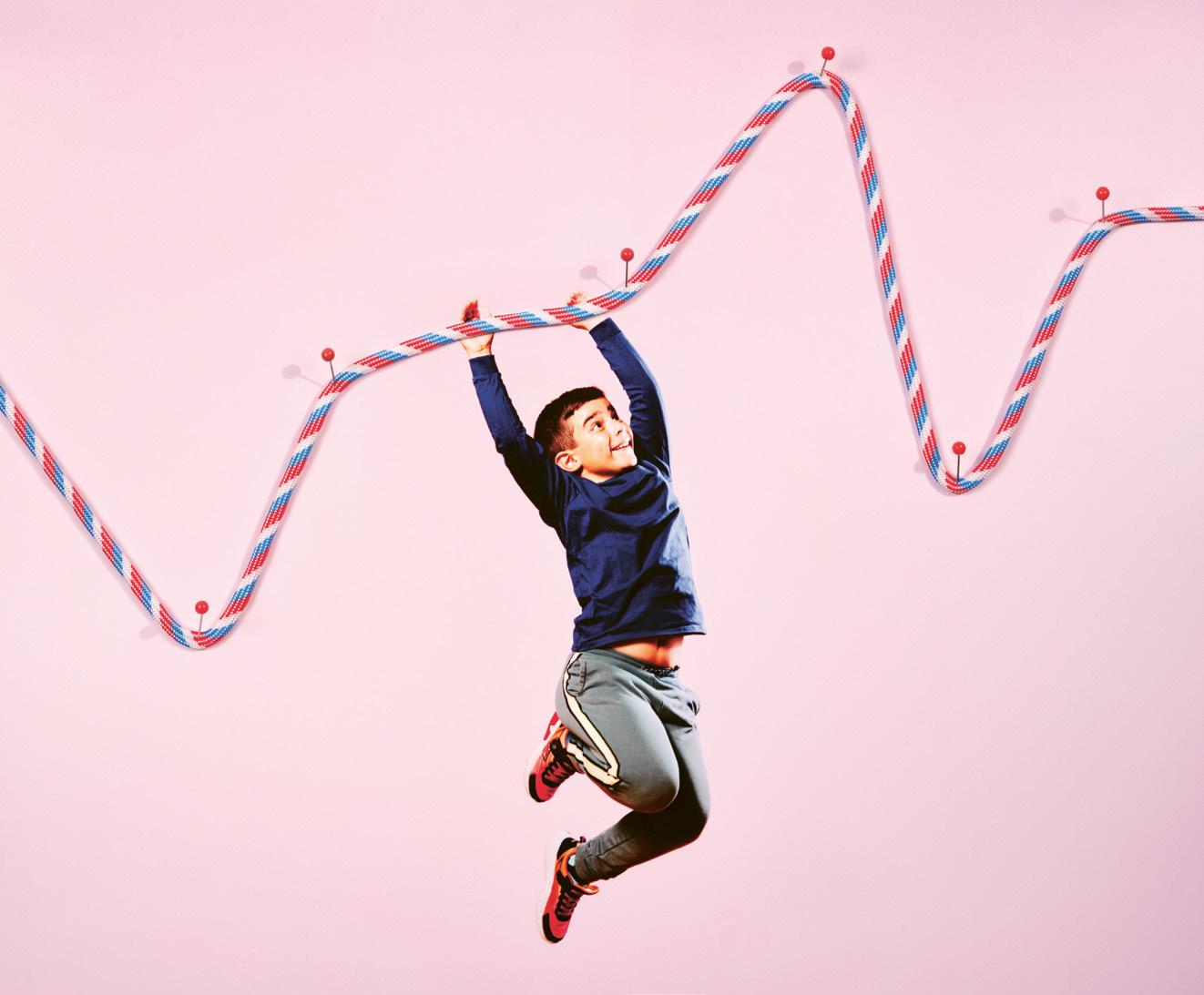
Better
When it comes to having the right information, it’s about quality not quantity


In October, we honoured our tradition of forward-thinking with ZIS Voices Live – an opportunity for more than 100 members of the community to explore emerging challenges in education and brainstorm solutions.
Facilitated by David McIntosh, and inspired by leading alumni and parent speakers, attendees covered topics such as future-ready education, the tools of change, and how to empower student wellbeing.
According to ZIS Director Elsa Hernández-Donohue: “ZIS is committed to harnessing the collective thinking and voices from our community to continue our long-standing tradition of learning, growing and innovating on behalf of our students – and events such as ZIS Voices Live serve that purpose. The Board of Trustees and the Strategic Leadership Team are looking forward to using the output from the event as the inspiration for future conversations that will frame the development of our next strategic plan.
“We’re incredibly grateful to our amazing panelists for their insightful discussions, our graphic recorder Nick Abadzis, Class of 1982, and everyone who made such a valuable contribution to the future of our school.”
Join the community globalcommunity.zis.ch
A dedicated and safe networking platform

#ZISExperience
#ZISLearns
#ZISCares
#ZISAlumni
#GoZISLions
Facebook zurichintschool
Instagram zurich-international-school
LinkedIn zurich-international-school
YouTube ZurichIntS
Grade 11 students had work experience through the ZIS
If you could offer a young person a career-boosting opportunity next summer, contact Coordinator, Maaike Lange, at internship@zis.ch
The Electric Vehicle in Education (EViE) project is a hands-on STEM challenge for our Engineering and Automation students, which involved students building a racing car in just 10 weeks. Grade 8 students took part in the inaugural race of the ZIS EViE car in Lausanne in June. Well done to all the students involved in this project, including a Grade 11 student in Design Tech IA class. We’re looking forward to seeing this STEM initiative develop this year with more races.

We’re proud to announce some amazing recognition for three of our Upper School students who have won awards recently across a range of STEM disciplines.
Grade 10 student Neel Dev Sen won first place at the Swiss Young Naturalists Tournament 2024 in June as a single person team!
The tournament challenges science enthusiasts aged 12 to 16 from across Switzerland, normally working in teams of two, to research a project in advance which they then present and defend in front of a jury.
And congratulations to Grade 12 students Andrea D’Ignazio and Divij Haralalka for taking first place in the Swiss National AI Competition for high school students, organized by ETH Zurich! Their innovative Thrill Route Optimizer project uses AI to help Europa Park visitors plan the best route based on queue times, walking distances, and snack breaks. The award ceremony, hosted by ETH Zurich, was supported by industry leaders such as Microsoft, W.I.R.E., and Innovate Switzerland.

The generosity of ZIS donors is helping our school to run on sunshine. Thanks to your support of the Annual Fund, solar panels have been installed on the roof of both campuses and solar ‘sunflowers’ have been installed near each entrance, bringing us even closer to our goal of switching to 100 per cent renewable energy by 2030. Each panel will ultimately produce approximately 435 watts of energy at peak capacity for a combined annual yield of nearly 300,000 kWh – enough to power more than 67 homes a year.
“Energy is key to our vision for becoming a sustainable school,” says Stefan Mühlemann, Chief Operating Officer. “The City of Zurich has set a target of net zero emissions by 2035 and the EU plans to reduce emissions by at least 55 per cent by 2030. To reach these targets, we all need to play our part.” The Annual Fund is a whole-community effort: thank you to everyone who is helping ZIS to play our part.
An F1 in Schools track in action, interactive science experiments, our new e-car and lots of other projects impressed visitors at our first ever Science and Innovation Exhibition in April.
Life Sciences and STEM are important parts of our strategic plan and we certainly saw the benefits of investment in these areas at the event. Secondary Campus students loved demonstrating what they’ve been doing in and out of the classroom and they certainly inspired our younger children!
A memorial to former AISZ teacher Don Bowden, who passed away aged 92 in Mill Valley, California in August, was held in Mill Valley in November.

Don lived a full and exciting life teaching and traveling around the world with his beloved wife Joan. Students at AISZ were privileged to have Don as a teacher from 1963 to 1966 and participate in his many school-led trips to such places as Israel, Berlin and Czechoslovakia.
In 2020, Don received the John Mattern award for his positive impact on students at AISZ and beyond, as evidenced by many former students who maintained a relationship with Don up until his passing. His infectious smile and laughter, and his stories of travel and adventure, will be greatly missed.
Tribute by Susan Hall, Class of 1965 (1965)

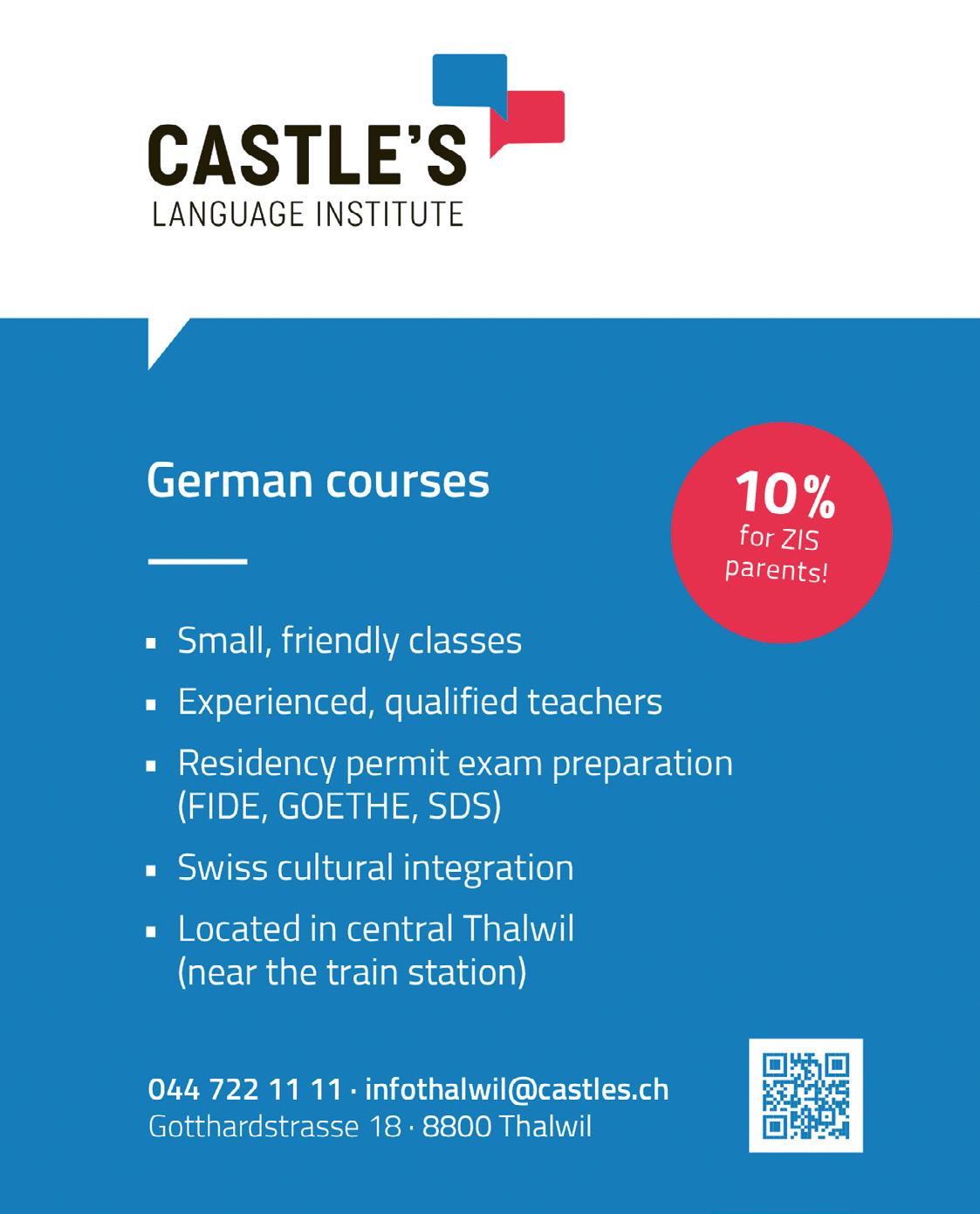


Elsa Hernández-Donohue
I have been reading...
Belonging: The Science of Creating Connection and Bridging Divides by Geoffrey L. Cohen for its practical advice on fostering a sense of belonging; and Inclusion on Purpose by Ruchika Tulshyan, “an intersectional approach to creating a culture of belonging at work”.
I have been listening to... The Future of Smart podcast by Ullca Joshi Hansen, which explores themes close to my heart around education, equity and philanthropy to reimagine an education system that supports transformative change.
I have been experimenting... with seasonal ingredients to develop yummy soups and salads. I particularly love my newest version of butternut squash soup – although I say it myself, it’s so good!
To develop curious, resilient thinkers, we must encourage a true sense of belonging – the crucial ingredient behind risk-taking and innovation.
What does it mean to belong? No doubt all our new students have been pondering that question – and as a fellow newbie, so have I! All of us, at some point, will experience that feeling of being new in any setting. And it can be a wonderful opportunity to observe and learn from those who form the community we have joined.
Indeed, joining ZIS as its new Director is a great honor and responsibility that I do not take lightly. To me, that responsibility centers on ensuring that our students are learning, our employees are thriving, our parents see themselves in our actions and words, and our alumni and partners remain connected to this incredible place of learning. Belonging – and the critical role that psychological safety plays in that – is crucial for all these things.
In many ways, belonging starts with the simplest gestures – a student being invited to join a lunch table, a teacher’s voice being valued, a parent hearing their language and culture reflected. As Geoffrey L. Cohen writes: “Belonging is the feeling of being at home in a setting.” At ZIS, belonging means creating spaces where all community members feel recognized, valued and safe enough to show up as themselves. This psychological safety is the bedrock of every great learning environment: a place where we encourage risk, treat mistakes with understanding, and see every individual as a unique contributor.
Psychological saftety means creating an environment where everyone feels secure to voice ideas without fear of judgment
So when we talk about ‘psychological safety’ at ZIS, we mean creating an environment where everyone feels secure to voice ideas, share experiences, and even express their vulnerabilities without fear of judgement. This safety is essential for fostering true belonging. As Cohen notes: “A sense of belonging not only shapes our self-perception but also impacts how we approach challenges.” When our students, employees, families and alumni know they can speak up and be heard, they feel valued and respected, which deepens their connection to ZIS. Psychological safety also enables a culture of risk-taking: the essence of meaningful learning and growth. We encourage students to step beyond their comfort zones, knowing they have a supportive community to catch them if they stumble. For teachers, this safety opens the door to experimenting with new teaching methods, ideas and collaborations, knowing that their contributions will be respected.
When we feel safe enough to take these risks, innovation naturally follows. In an atmosphere that encourages creativity and exploration, new ideas can flourish: enriching us as individuals but also strengthening the entire ZIS community. Our students learn to be curious, resilient thinkers; our teachers inspire one another and deepen their impact; and our families become partners in an educational journey that values their perspectives and experiences. I’m excited to see where it takes us. Z
• Illustration Carla McRae


Community members gathered in September to celebrate Carmenza Vásquez, this year’s John Mattern Alumni Award recipient.
Carmenza, who taught Spanish at the Upper School for 15 years before retiring in 2022, was presented with an engraved plate by members of the John Mattern Award Selection Committee.
We are grateful to Isabella Sanchez Robayo, Class of 2022 (2009-22), for her heartfelt remarks about Carmenza and to all the alumni who submitted videos or attended the event. It was a wonderful reminder of an educator’s profound impact on their students.

Ruhi Pungaliya, Class of 2023 (2021-23), won a bronze medal at the International Economics Olympiad in July.
“I am beyond thrilled,” says Ruhi, a member of the Swiss team competing in Hong Kong, and currently studying Mathematics at the University of Zurich.
“My studies at ZIS provided me with a solid foundation for the economics exam that I could build upon. I believe that ZIS nurtures its students with a holistic approach to prepare them for such diverse experiences.
“During my business case presentation – where we were given 10 minutes to present our analysis, understanding and innovative solution to a jury with only 24 hours of preparation – I recalled my learnings from similar presentations as part of the MUN Club, the Finance Club and from assignments during my IB Economics classes.
“I would especially like to thank my economics teachers Mr. Maley and Mr. Andersson for their teachings!”
Do you have news to share? We’d love to hear about it. Contact the alumni team at alumni@zis.ch
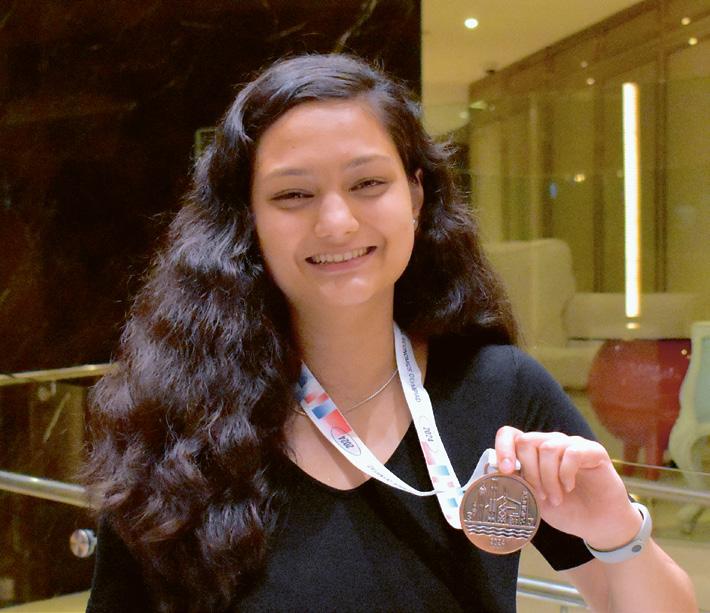
• International rowing silver
William Widerberg, Class of 2024 (2010-24), represented Switzerland by rowing with the national team at the International Regatta, Le Coupe de Jeinesse. After a 10-day intensive training camp, the national team won silver.
• Reunions
Alumni, faculty and guests have gathered on the rooftop of the Secondary Campus recently to celebrate two key reunions. In July, the Class of 2004 came together to celebrate 20 years, while a month earlier, the Class of 2014 celebrated their 10th anniversary. The event also included the dedication of a tree in memory of their classmate Josh Ballinger, who died in February 2018.
To help plan an event, contact alumni@zis.ch
• ZIS authors
Alumni faculty member Rick Briggs (2014-2023) set his recently-published first novel Rage Quit in the Spinnergut Villa, while Richard Morais, Class of 1977, and ZIS parent Mark Haefele will publish The New Rules of Investing: Essential Wealth Strategies for Turbulent Times in early 2025.
• New additions
We’re delighted to announce the arrival of three babies across the alumni community: Connor Wood, Class of 2014 (2010-2014) is thrilled to have become a father; Christina Haupt, Class of 2010 (2004-2010), has given birth to Robin Santiago Gfeller; while Taylor McCants, Class of 2013 (2011-2013) and Luca Weibel, Class of 2014 (2009-2014) welcome Theodore Johan.
Got something to share? Tell us your

Ellie Williams, Grade 10, and Allegra Hartstern Mostacero, Grade 12, have been honoured with two prestigious awards. Ellie (left) is the 2024 recipient of the Hanna Gasser German Language Award, in memory of Hanna Gasser, Head of the World Language Curriculum Area from 1990 to 2001. And Allegra (right) is this year’s recipient of the Daniel Floersheimer Photography Award, given every year to a student in Grade 11 or 12.
Daniel, Class of 1977 (1972-77), established the award to recognise outstanding photographic talent.
“I give my sincere thanks to Mr Floersheimer,” says Allegra, “and I’m incredibly grateful to the arts department for facilitating such a great opportunity.”

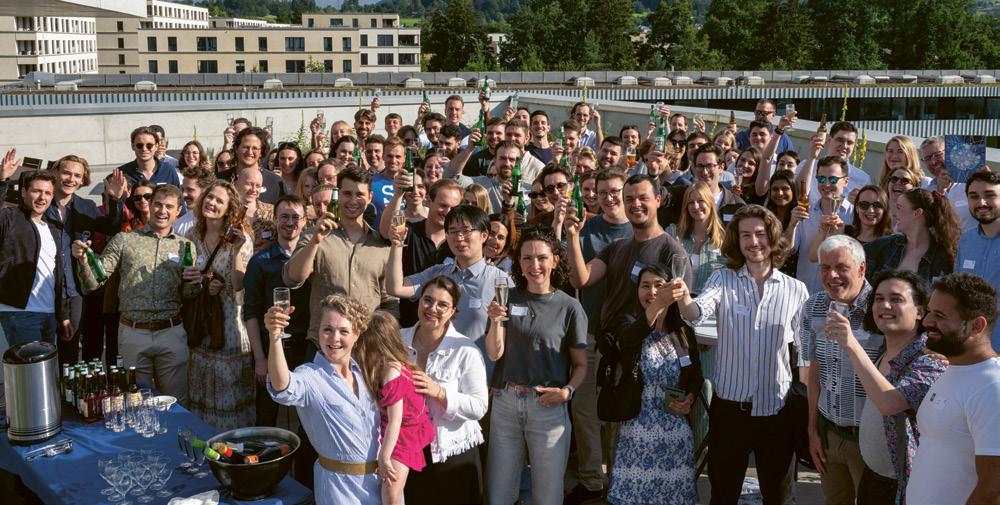
It’s great to see so many familiar faces as the ZIS Meets series of events continue. Alumni from the classes of 1981 to 2020 gathered at The Royal Court Theatre in London in March, those from classes spanning 1970 to 2022 gathered in New York’s West Village, while others gathered in Washington DC to renew old friendships. Finally, an event in Zurich marked the beginning of more regular alumni gatherings planned





Great genetics
We control cells by controlling their genes. Breakthroughs here come when biologists borrow ‘tricks’ from their favourite species: to edit human genes we use tools that bacteria evolved to fight viruses; to control genes with light we use tricks that plants evolved to measure day length.
Great optics
One of the great challenges will be to watch what our engineered cells are up to. Here, we need experts in optics and imaging.
Great bedside manner
Patients may be nervous about using genetic engineered cells. Here, we need medical professionals used to explaining risks to patients and delivering the needed care.
Control the body’s cells and control disease, says alumni parent Professor Darren Gilmour, Department of Molecular Life Sciences, University of Zurich.
The explosion in life sciences over the past few decades has given us an incredible level of understanding of living systems. Today, scientists can manipulate those systems in ways that would have been unimaginable just a few years ago.
And that matters. For instance, if we want to solve disease, we need to gain control of the trillions of cells that make up the human body. The cells themselves may have different behaviours: neurons are involved in making complex decisions; immune cells scan for invaders and wipe them out; and epithelial cells are the building blocks of our organs. But they create enormous communities within us, governed by a complex set of rules. Sometimes the rules go wrong – and that can lead to disease. Most noninfectious diseases, essentially, are either something breaking down – which we know as degenerative disease – or the opposite, as in cancer, where cells become more anarchic than they should be.
To control those cells, we have to understand their rules, rules dictated by their genes and the communication between them. In recent years, we’ve learned a lot about genes and how to change them using a process called gene editing, resulting in breathtaking breakthroughs in this space.
For example, we can now change the programming of cells to get them to execute some other function. We can also manipulate many of the behaviours of cells by targeting their receptors which, like little satellite dishes, allow them to sense the world outside of themselves. These satellite dishes will tell the cell what’s happening, prompting it to react in a certain way.
In many contexts, we can now rewire cells so that we decide what information they receive – what they sense and how they sense it, and even how they respond. For instance, rather than responding to the usual chemical signals, we can engineer cells to respond to light. Light is incredibly powerful because we know how to control it –we can define the colour, the intensity, where we shine it and when we switch it on and off.
We’ve learned a lot about how to change genes through a process called gene editing, resulting in breathtaking breakthroughs in this space
By controlling gene activities with light – termed ‘optogenetics’ – we can control cells or processes inside cells. There have been tests but not much of this is being done in humans yet. There are myriad ethical, safety and political issues to solve before that can happen, but there is zero doubt in my mind that this technology can be transferred wholesale to people, when we as a society decide that the time and the application is right.
In the future, we’ll have more control and we’ll be able to direct a person’s cells – telling them what to be, where to go and what to do when they get there. Cancer, autoimmune disease, organ regeneration – with our cells on-board as collaborators we should hopefully be able to solve it all. Z
They lost touch for 30-years, but old friends David Dahl and Mike Farkas say that today their connection is as strong as ever.
• Words Lucy Jolin
S
chool friends David Dahl, Class of 1974 (1964-1972) and Mike Farkas, Class of 1974 (1968-1971) can’t remember exactly how they met – but they do recall, with great certainty, the passion that brought them together: mopeds. “We used to fix and soup them up to go as fast as we could get them. We used to also go downtown in Zurich all the time and terrorise the city!” says Mike.
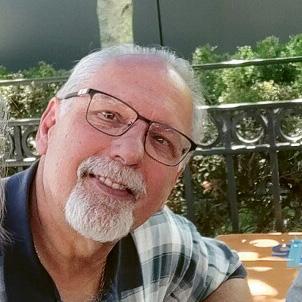

They still have that shared love of vehicles –in fact, the two are already planning their next session working in David’s garage in Katy, Texas. But they also shared – then and now – a sense of belonging at AISZ, which, at the time, was home to just 86 students. “We were a small, tight-knit group and everybody got along with each other,” says Mike. “It was almost like a second family. And, as Americans, we stood out in Zurich at that time. We had white Levi jeans and T-shirts, which Europeans couldn’t get. In fact, we’d go down to the Bahnhofstrasse, scan the crowds, point out Americans and then give them tips on where to go in the city. It was lots of fun.”
After leaving school in the early 70s, they lost touch for the first four years, then reconnected when they were both at college: Mike at Ohio State University and David at a Canadian school, since that’s where Dow Chemical sent his parents. But after they graduated, they lost touch again – until 30 years later. “Mike came down
from Ohio and stopped at my house,” remembers David. “And even though it was the first time I’d seen him in 30 years, we just picked up again from where we left off.”
The two started taking vacations together a few times a year. “It didn’t matter where, but we always found a way to get back together and hang out,” says David. “Like brothers.” Mike says that he considers David his brother, too. “There’s a big closeness to everybody who was in the school. And that continues to this day. I even married my old high school sweetheart, Kathy Verch Farkas, Class of 1973 (1969-73), after we’d reconnected 35 years later.”
Eager to recapture the vibe of their schooldays, Mike and David returned to Zurich in 2012 with their sons – and found, to their astonishment, that they ran into their old classmate Sandra Day (née Burgo), Class of 1976 (1971-76), at Bellevue Platz. “We hadn’t seen her in 35 years!” says David. “We just could not believe it. What a small world!”
How has their friendship endured? “You’re born with your family, but you can pick your friends,” says Mike. “We enjoy each other’s company, and share interests, and our thought processes are very similar. We have a good time with each other.” David adds: “Our wives say that we’re clones! But it’s also trust. Trust in and love for each other: that’s the two biggest reasons.” Z

“As Americans, we stood out in Zurich at that time. We’d go down to the Bahnhofstrasse, scan the crowds, point out Americans and then give them tips on where to go in the city. It was lots of fun”

Current parents Anthony Draper and Peter Gain, who invest globally in venture capital, offer their top tips for exploring South Africa’s capital.
06.00
Start the day with a sunrise hike
Cape Town is famous for Table Mountain, but beside it is the smaller Lion’s Head, which has the profile of a lion. We love the peak at sunrise to enjoy the view right across the peninsular.
09.00
Breakfast at the Oranjezicht City Farm Market
With almost 60 stalls, this food market at the Waterfront spoils you for choice. We like a green juice and a breakfast roll with eggs and bacon before a stroll down Muizenberg Beach.
14.00
Visit the penguins at Simon’s Town
After fish and chips at Kalky’s, we always visit the Jackass penguins at Boulders Beach. Yes, it’s super touristy, but it’s one of only three mainland spots in Africa where you can see them.
17.30
Coast along the Chapman’s Peak Drive
We get goosebumps here, one of the most spectacular drives anywhere in the world, just a few hundred metres above the sea. Stopping at Tintswalo Hotel after for sundowners is a must.
22.00
Dance into the Cape Town night
We like to wind down with after-dinner cocktails and a dance at Boma on Bree Street. They have a secret cocktail bar in the basement – it’s the place everyone is talking about at the moment.
#ZIStravels


Everyone makes bad decisions; not everyone learns from them – and that’s a shame because, really, making the wrong choice is a chance to gain wisdom.
• Words Lucy Jolin • Illustration Tim Bouckley
We’ve all been there. That moment when, instead of pointing due north, the needle of your moral compass starts to waver, wobble and spin. You know what you ought to do, but you really don’t want to do it. And that’s the moment integrity comes into play: the internal framework that helps us decide whether something is right or wrong. We don’t always pay attention to it. We’re all human, after all – and wisdom often comes with making the wrong choices. But there’s a reason why integrity is one of ZIS’s core values: it makes us better humans in a better world.
“Integrity is about doing the right thing even when nobody’s looking,” says David Markus, Upper School Principal. And living with integrity, he points out, isn’t just about yourself, but the stability and peace of your community, too – a family, a school, a village or a country. “If we can’t trust each other to do the right thing, that hurts everyone.”
Of course, integrity is not an innate quality. It needs to be taught, which is why any adult in a child’s life has a duty to model integrity to them. Much of the time, that’s about practising what you preach, points out Marlo Frontiera, Lower School Counselor. “Helping children develop integrity and modelling it in our own lives involves a combination of teaching, demonstrating, reinforcing the values of honesty, fairness and responsibility. We can’t just tell children to be a certain way. We actually have to do it.”
Children often learn the most from the little things in the home, she says: the way we speak to each other at the dinner table or talk about our jobs or friends. “It might seem like not a big deal. But it’s teaching a child what you think about what is and isn’t OK.”
Modelling integrity at school and in the home has become even more important over the past few years, says David, with the advent of social media and a change in public leadership style. “Changing your mind in public has become a lot harder. And there are so many people in the public eye who put down others, treat them badly, and lie like crazy.”
Could having integrity help us to be happy, less stressed, have better relationships and improve our communities? It certainly plays a crucial role in clarifying our decision making, offering guiding principles to frame our thinking
The way through this, he says, is to celebrate those in the public eye who do admit mistakes: the team coach who concedes their strategy didn’t work; the company that believes in its mission and remains true to it despite criticism; the politician who admits they got it wrong. “Our job is to highlight the ones who are doing it right, amplify their voices, build them up, and call it out when others are not acting with integrity.”
At ZIS, integrity is woven throughout the school day, says Marlo. “Along with being role models ourselves, we discuss those values openly within the classroom. We use stories and books. We see it, frame it and name it: for example, a teacher will say: ‘I see you’re using your integrity and telling the truth right now.’ We reinforce day-to-day integrity on the playground, at lunchtime, in the classroom – everywhere where children problem solve and communicate with their friends. And we connect having integrity with our feelings – because when you have integrity, it feels pretty good.”
Books for all ages which align with integrity are a perfect learning tool: Marlo cites Wonder by R. J. Palacio – the story of a home-schooled boy with a facial deformity who goes to school for the first time – as a brilliant jumping-off point for talking about integrity with children. “We have some pretty deep discussions!” she says. “It has some amazing threads around supporting another person, being honest and apologising and having to admit that you’ve made a mistake and that you would do it differently next time.”
And teachers, too, need to model integrity, says David. He recalls a time where he had responsibility for a colleague who frequently made mistakes. He cared for that person, he says, and tried to convince himself that they would improve. When his superiors asked him if his colleague was making progress, he didn’t tell the truth.
“I was lying to myself, and I was lying to them,” he remembers. “That person ended up being at the workplace for two years too long, and it was damaging. All because I was afraid. Since then, I’ve tried to be honest. I will say: I care for you a lot, but this is the truth, and if I don’t tell the truth, the situation will get worse. We have to work on this, and if it doesn’t get better, it can’t continue.”
David has two posters in his office: one reads: ‘Let’s make better mistakes tomorrow’, and the other: ‘Ten things to say to kids every day’. “One of those things is ‘sorry’,” he says. He recalls a student who turned in low-quality homework. “I was sharp with them, and they
broke down crying. They said they had struggled for two weeks trying to get this work done, and they got stuck. I felt terrible. If I’d been able to say sorry… that’s integrity. I think students respect a teacher who can do that: they look for teachers to own up to their mistakes, just as they are supposed to.”
Nobody’s saying that acting with integrity is easy. And certainly, in the short term, making the wrong choice can seem very easy. “There’s always a balancing act,” says Marlo: “‘Do I tell on my best friend because she took something out of someone’s lunchbox?’ What is the choice you make when you are trying to be a good friend, but you also want to act with integrity? It can be very difficult, and that’s where discussion comes in.”
David agrees. “It’s hard because our minds play tricks on us. They tell us that something is not truly a lie, or that we’re just trying to make it easier for someone else. But often, whether we know it or not, we’re just protecting ourselves. Normally, when you’re honest with someone or you challenge them, they react negatively. They get defensive, they push back. And most of us don’t like that pushback. So we avoid it. Or if you make a mistake, it’s the hardest thing to own your mistake. Very few people have the courage to do it.”
But it’s worth it – because integrity can truly be a path to a better life. It helps us to be happy, less stressed, have better relationships and improve our communities. It plays a crucial role in clarifying our decision making, says Marlo, becoming a guiding principle to frame how we think.
“And it helps us to avoid regret, because if we act with integrity, we’ve made decisions that align with what we believe. This, in turn, helps us to build self-confidence. When you have inner consistency in what you believe, then your actions align with your values. This boosts your ability to make tough choices, because you know where you’re coming from. You can stand firm under pressure.”
So when our moral compass starts to flicker into life, perhaps we should consider just how vital integrity is to ourselves, and everyone around us, and ask: ‘Is fighting my personal sense of integrity worth it?’ As a self-confessed “philosophy guy”, David suggests considering the Aristotelian concept of eudaimonia. “In philosophy, this means living a good life in true happiness. If you don’t lie, you don’t have to make up other lies to cover your lies. For me, having integrity – living in line with your values, telling the truth, being true to your word – is the secret of being happy. And it’s truly an easier path.” Z


*NOT BIGGER
Whether it’s quantitative or qualitative, continuous or discrete, nominal or ordinal, data in 2025 is about quality not quantity.
• Words Lucy Jolin • Photography Kate Peters
Want to get to the heart of what’s really going on in your organisation? The answers you need could be right there in your data. “Data is our superpower,” says Dr Emily Harburg, Class of 2007 (1996-2000), CEO and co-founder of PairUp, a platform that connects and supports staff across organisations to get the answers and resources they need. “I think of data like knowledge, or intellectual property that you can utilise and tap into. It helps us understand trends. It tells the story.”
But with so much data available – it’s estimated that one person can create around 15.87 terabytes every day – how do we use it to get insights that matter?
Will Kirkwood is educational data and technology coordinator at ZIS, and championing the effective use of academic data to inform teaching and learning is a central part of his role. “We have a plethora of data at our fingertips,” he says. “Every lesson at ZIS contains a million potential data points. But one of the challenges – in education, as in society – is trying to sort through that data and find the meaningful information. The stuff that will enable you to make an actual impact on student learning.”
Centralising and consolidating, he says, is key. ZIS has a long history of collecting a significant amount of academic data, but it wasn’t always accessible to everyone who needed it, and, critically, it wasn’t centralised. Today, there is a set process for what data is collected, when it is collected, and how it is shared. Historical data has been cleaned, meaning that all data can be easily visualised on the academic learning dashboard, allowing teachers to access a rich seam of information about their students –information they can use to inform practice.
“For example, say a teacher wants to see how a class did in maths and reading two years ago, they can now just click and see this information,” says Will. “We had
Every organisation is data-rich – but not every organisation is data-informed
that data in the past, but because it was in different little pockets, we couldn’t visualise it.”
Finding an effective way to present data is vital: there’s no point in having it if non-technical people can’t understand it. Last year, ZIS created a similar tool for parents, the Learning Growth Dashboard, which provides visualisations of key metrics for parents of students in at the Secondary Campus. “Parents are keen to know what good looks like,” says Will. “The dashboard shows a student’s results over time, in one location – and it’s the same information that the teacher sees.”
ZIS isn’t alone: organisations from all sectors are increasingly turning to data to gain deeper insight into areas as diverse as HR and communications, says Cornelius Carlsson, Class of 2017 (2013-17). Currently studying for a PhD at the University of Oxford, focusing




on quantum computing and AI, he is a member of student-run finance and consulting society CapitOx, which harnesses student energy and insight to solve real-world business problems.
His team recently took on a project with pharmaceutical giant Roche, which asked them to come up with ways of using data to drive their internal communications strategy. “They had undergone a big restructuring and wanted to better understand their employee demographic, such that they could improve the tailoring and targeting of their communications,” explains Cornelius. “For instance, younger people have a delayed circadian rhythm, which means they may tend to wake up later and look at their emails later compared to more senior colleagues. We were given a lot of data that was highly unstructured. And our task was essentially to tell Roche what the data showed.”
There was indeed a lot of data: Roche has more than 100,000 employees, and each employee had around 10 variables – age, length of employment, location and so on. Cornelius and his team used a programming language to process and organise it, splitting the task so that one person examined employee geographies, another organisational level, and so on. “One of the biggest challenges is not necessarily acquiring the data but organising it in a way that can give you the most meaningful insights for your objective, whatever that is.”
The insights that the project was able to reveal are confidential, but Roche was very impressed with the
Teachers get a read on students; they are aware of how they are feeling. That’s an important data point to bring to the table
team’s conclusions and will continue working with them. “They now want to get recommendations on how to implement what the data shows, because of course data is only as valuable as the actions you take in response to it,” says Cornelius.
His team, too, discovered the importance of visualising data in an accessible way. “We made some very nice visualisations but received the feedback from the company to stick to bar charts and pie charts, because that’s what people are used to seeing and therefore find quickest to process.”
Finding meaning like this in millions of data points is a key challenge for organisations, says Emily, but it’s also a big opportunity. PairUp, for example, seeks to cut through the noise, simplifying and cleaning up knowledge pools that have become vast and unwieldy. “There is a lot of benefit to having a lot of data and content. But it can become confusing, especially when there are conflicting pieces. How do you help quiet the noise and discern what the truth is?”
“For example, what’s out of date? Who needs more support? What documents have fallen out of use? It’s like having a house with junk everywhere.” Once they’ve identified what is needed, PairUp’s teams work with the organisation to sort, order and organise that knowledge, so it’s easily accessible.
But they have also found that much of an organisation’s valuable knowledge isn’t necessarily on any documents. It’s inside people’s heads. “And it’s vital to better document and share that,” says Emily. “Otherwise, if someone leaves, all that knowledge is lost with them. Our system ensures that knowledge doesn’t get lost – and that people get the right help and the right answers, based on their needs.”
As a social psychology and anthropology undergraduate at Harvard, Emily wasn’t sure where her career would take her. But a lecturer reassured her that the world would always need people who were human-centred to build technology – and that advice resonates with her now more than ever. “AI has allowed us to utilise data so much more powerfully,” she points out.
“I think a lot of times in the past there was just data for data’s sake. Now, we have the ease of using that

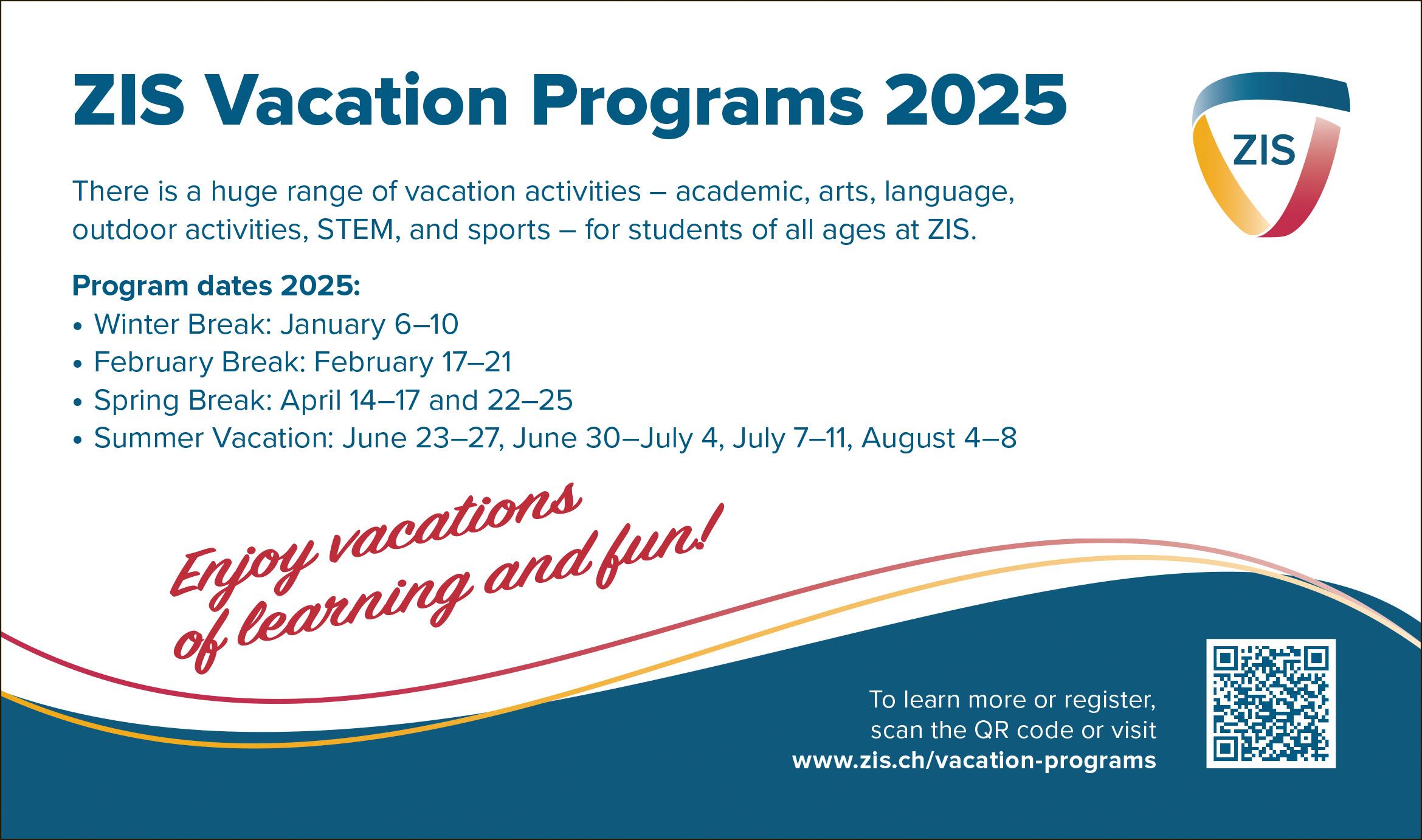

data in more powerful ways. There is great possibility – and also risk, which is why we need to build with thoughtfulness, and with humans at the centre. The more we have this approach to building, the more helpful our tools will be to people.”
This kind of human-centred way of thinking is vital at ZIS, too. Will is keen to point out that gaining insights from data is so much more than crunching test scores. “A test gives you rich results. But you also need to think about how that test fits into the complete picture: a student could just be having a bad day. That’s why we triangulate and cross-reference data points, too.”
And those data points aren’t just numbers, either. ZIS is increasingly adding weight to anecdotal notes and observations about a student’s behaviour, wellness and relationships. “For example, if you know that a student has been struggling with friendships, that’s another lens you can use to look through,” says Will. “Teachers get a read on students; they are aware
We need to use data with thoughtfulness – and with humans at the centre
of how they are feeling. That’s an important data point to bring to the table.”
Every organisation is data-rich, he says, but not every organisation is data-informed. “That means having a process, reflecting on that information, actively collecting that information, and then acting on it, as we do at ZIS, to help every student grow.” Z
You’ve gained experience, directed change, delivered results. And now? It’s time for something different. Becoming a non-executive director (NED), whether at a global company, tiny charity or school, can be incredibly rewarding – but how do you find the right role?


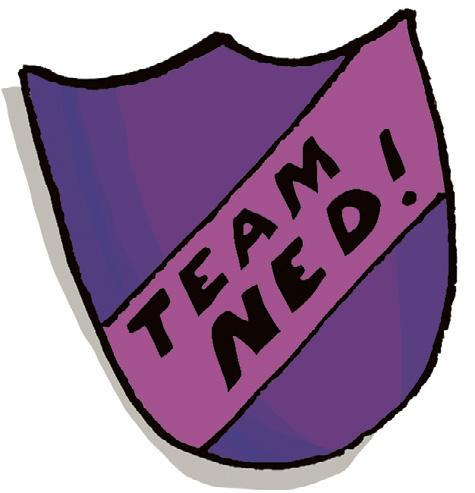

You’ve gained the qualifications, worked hard, and are now at – or near – the top of your game. What next? Maybe it’s time to give a little back, to use some of that hard-earned experience and help support the next generation. If that’s you, the world of the non-exec awaits.
Becoming a non-executive director (NED) is a natural step for many, whatever the stage of their career. Whether working for a small local charity or huge global company, becoming a NED gives you the chance to step away from your daily routine and use your knowledge, contacts and experience to take a more holistic, long-term overview of how an institution should develop.
That’s exactly what ZIS parent Lexie Utterman has done. When the first of Lexie’s three children began attending ZIS in 2014, she wanted to get involved with the school community. At first, she worked with the Annual Fund committee, but in 2017 she was elected to join the school’s Board of Trustees, where she can offer strategic guidance and oversight to the school.
Our NEDs
The ZIS Board of Trustees is the guardian of the school’s mission. It is the Board’s responsibility to ensure that the mission is relevant and vital to the community it serves and to monitor the success of the school in fulfilling its mission.

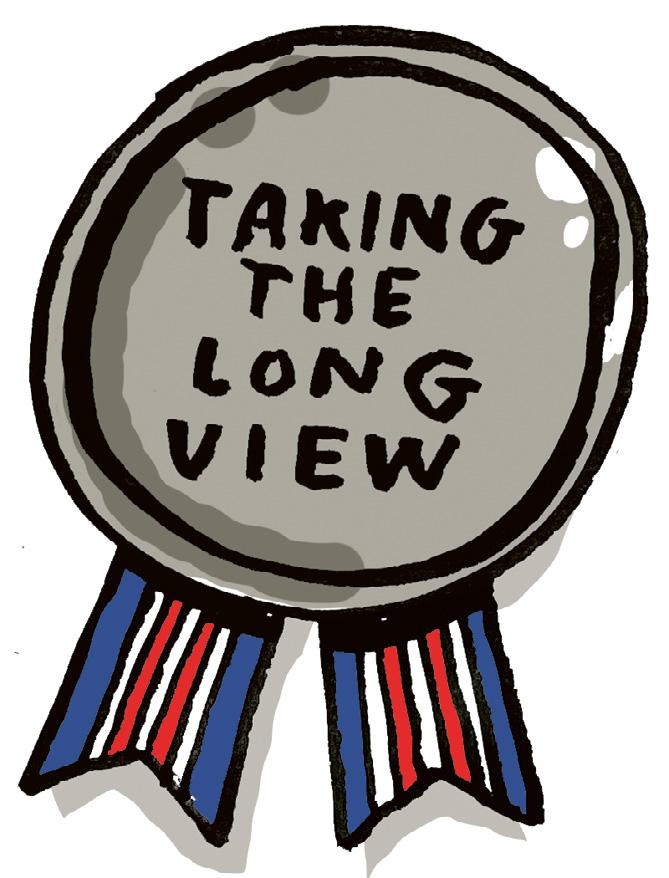


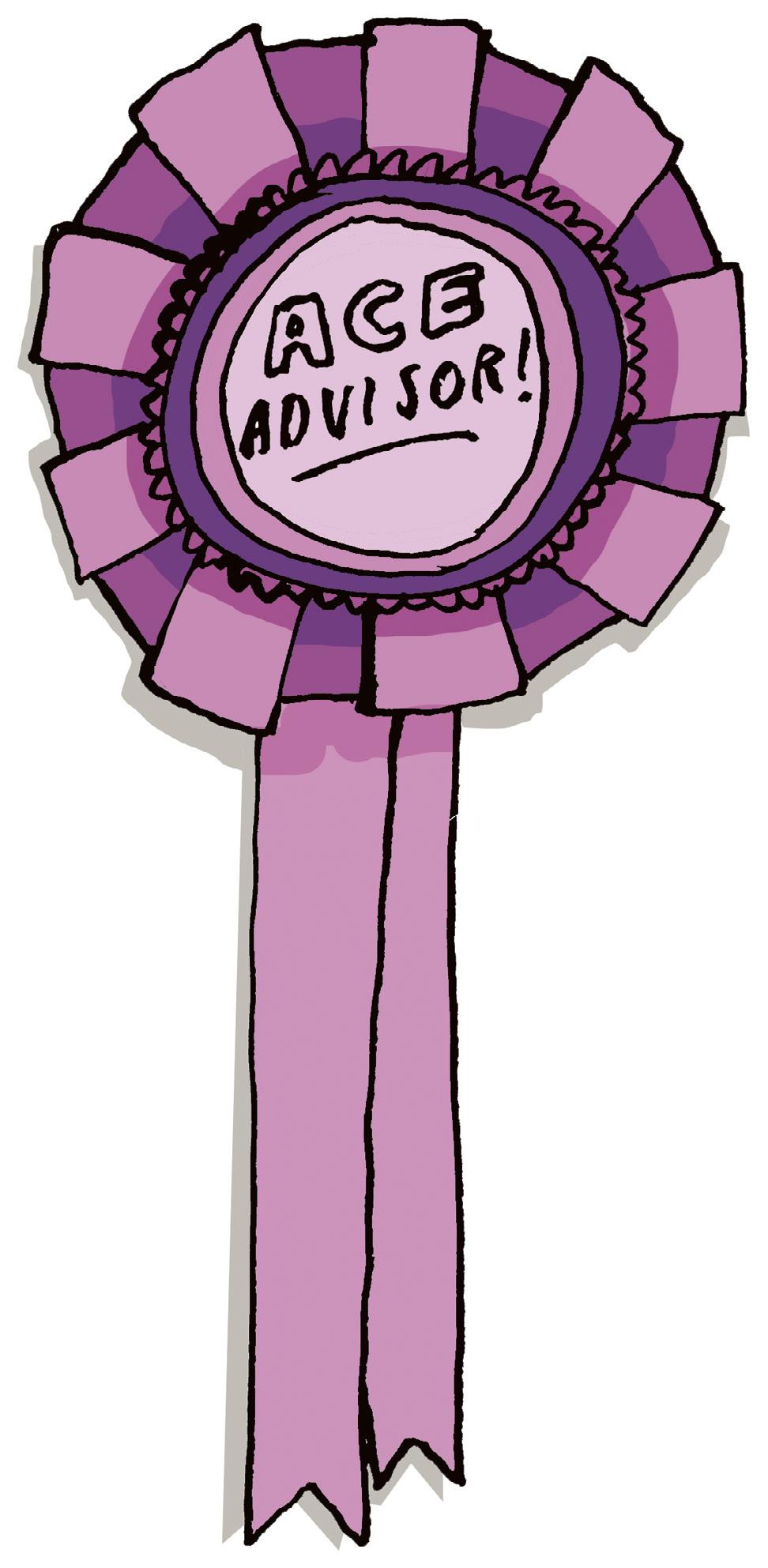
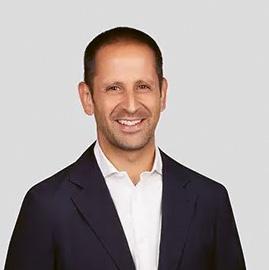
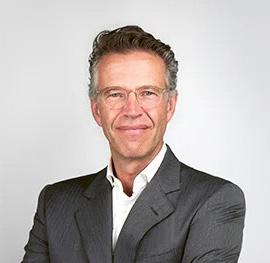
You need to be committed to a philosophy of contributing to the greater good and, in this case, driving continuous learning
“It’s incredibly fulfilling,” says Lexie, whose day job is Senior Equity Portfolio Manager at Lombard Odier. “It can be a very exciting collaborative experience that offers something you don’t find in your daily work. It’s not easy and it is a big commitment, but I get so much energy from this kind of work, and I can take that energy back to my day-to-day.”
So what exactly does the non-exec role entail? The core is to advise on strategy and good governance, offering unbiased advice to the leadership team. NEDs often bring expertise on specific areas such as finance, law or sustainability, and use prior experience to help an institution enhance their own offering. The opportunities are vast – but finding the right role can be challenging.
“It needs to be something you are passionate about,” says Gil Katzman, Class of 1977 (1972-73). Gil has worked as a voluntary non-exec for charities in the hospitality sector in Florida, where he is Director of Sales and Marketing at Hilton. His job currently takes him all over the US, where he often seeks out fellow alumni, and he was invited to join The Foundation for Zurich International School, a US non-profit associated with the school, to offer valuable insights into growing the alumni community in the US. He attends board meetings four times a year, as well as acting as an ambassador in his travels to build networks of alumni.
“It helps to be passionate about a paid role too, but it’s really important if you are making a commitment without pay,” he says. “You need to believe and be willing to contribute whatever knowledge and connections you have to further the cause of the organisation. The commitment for an unpaid non-exec is to be passionate, otherwise why do it?”
Dr Michael Huertas, Class of 2002 (1996-99), believes that his time at ZIS taught him the importance of contributing beyond his professional responsibilities. He heads up the global financial services practise for PWC Legal but makes time to sit on the Donors Committee of Goethe University Frankfurt am Main’s Institute for Law and Finance, having previously taught two LLM courses at the university.
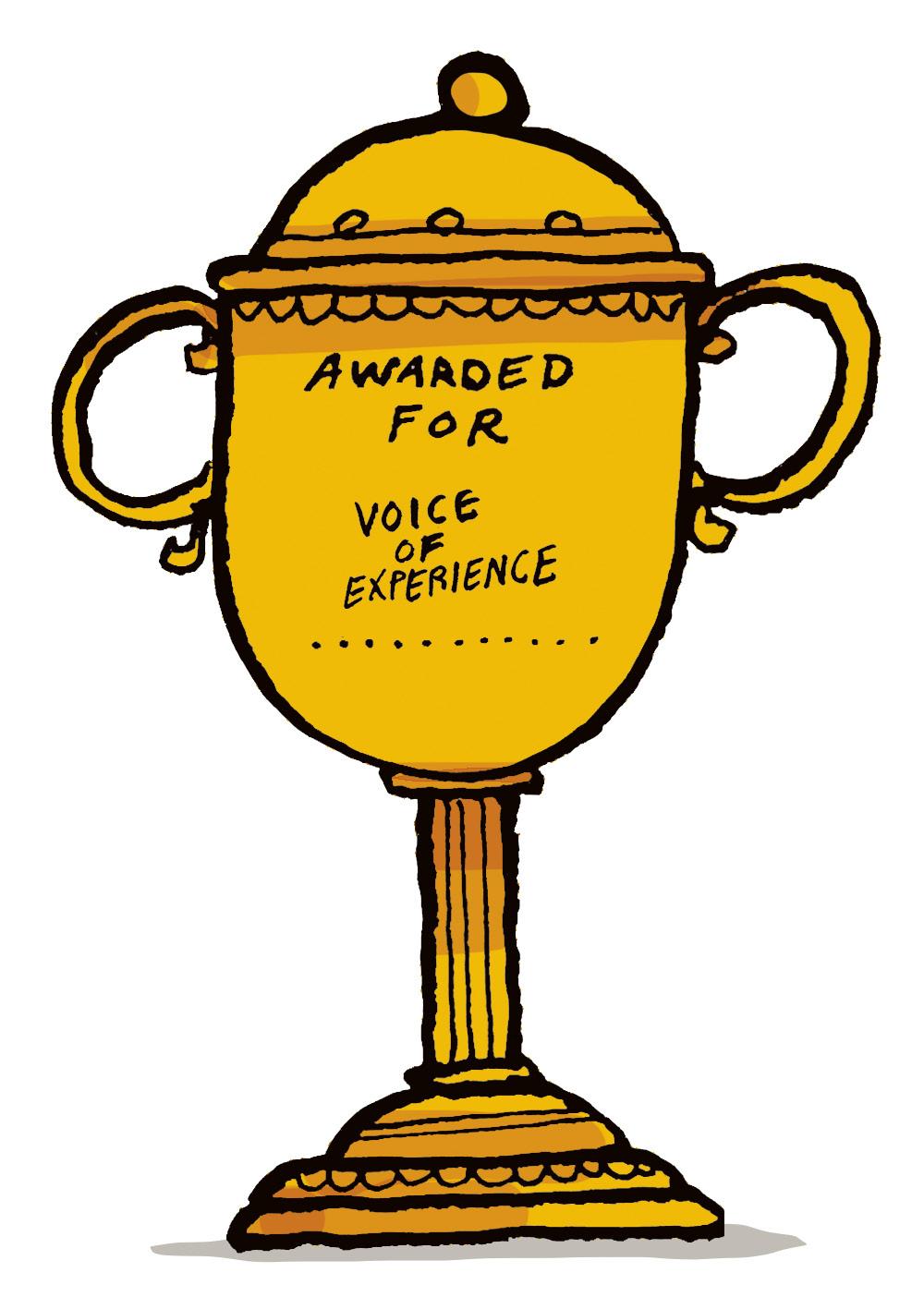

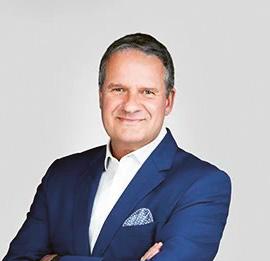




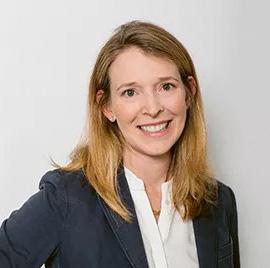
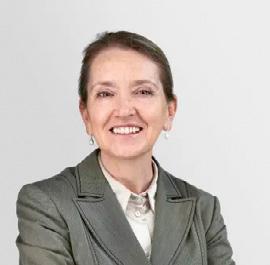
“The Donors Committee is comprised of professionals who effectively carry out non-executive director functions – providing our skills and experience for steering and accountability,” he explains. “I find it exceptionally rewarding because I am interested in lifelong learning and giving back to the community; things that were instilled in me at ZIS through the IB system.”
A well-chosen non-exec role can provide you with skills and experiences that complement and broaden your professional capabilities, acting almost as a parallel career by allowing you to take your talents into a different market or industry. However, there are regulatory limitations. “Different countries have different rules about how many of these roles people can take,” explains Robin Zegger, Class of 2015 (2011-15), who works for Swiss headhunter Egon Zehnder. “Because of potential conflict of interest, you need to choose very carefully. Sometimes if you take a non-exec role you might have to stay out of that sector for some years before taking another role, so you need to make a strategic choice as you might have to turn down a dream job later down the road.”
Robin thinks that anybody interested in becoming a non-exec should start early, using their personal network to develop skills and contacts. She believes that voluntary roles can be a great introduction to the non-exec job, as they provide insight and experience with fewer formal responsibilities.
But even voluntary roles can be extremely demanding. As a member of the Board of Trustees at ZIS, Lexie attends six board meetings a year, each three hours long and requiring a similar amount of preparation. Every Board member is on a separate committee that meets monthly during the school year, and there are two strategic off-site meetings, each a day-and-a-half long.
It’s a major commitment because the role has substantial responsibilities, including overseeing the hiring of the director. Lexie was on the committee that offered guidance in the appointment of Elsa Hernández-Donohue, now Director, a two-year process that saw the Board supported by parent representatives, employees, administrators and a specialist education recruitment team. At ZIS, trustees commit to serve two terms of three years each – but sometimes a Board member might be asked to stay on for a third term, as happened with Lexie because of her prior experience in recruiting the previous Director.
Because of the responsibilities, the recruitment process can be quite formal. At ZIS, the Board undertakes long-term succession planning, identifying specialisms that are required before inviting candidates to apply. “After inviting applications, we have a series of one-on-one virtual

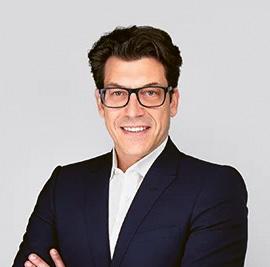

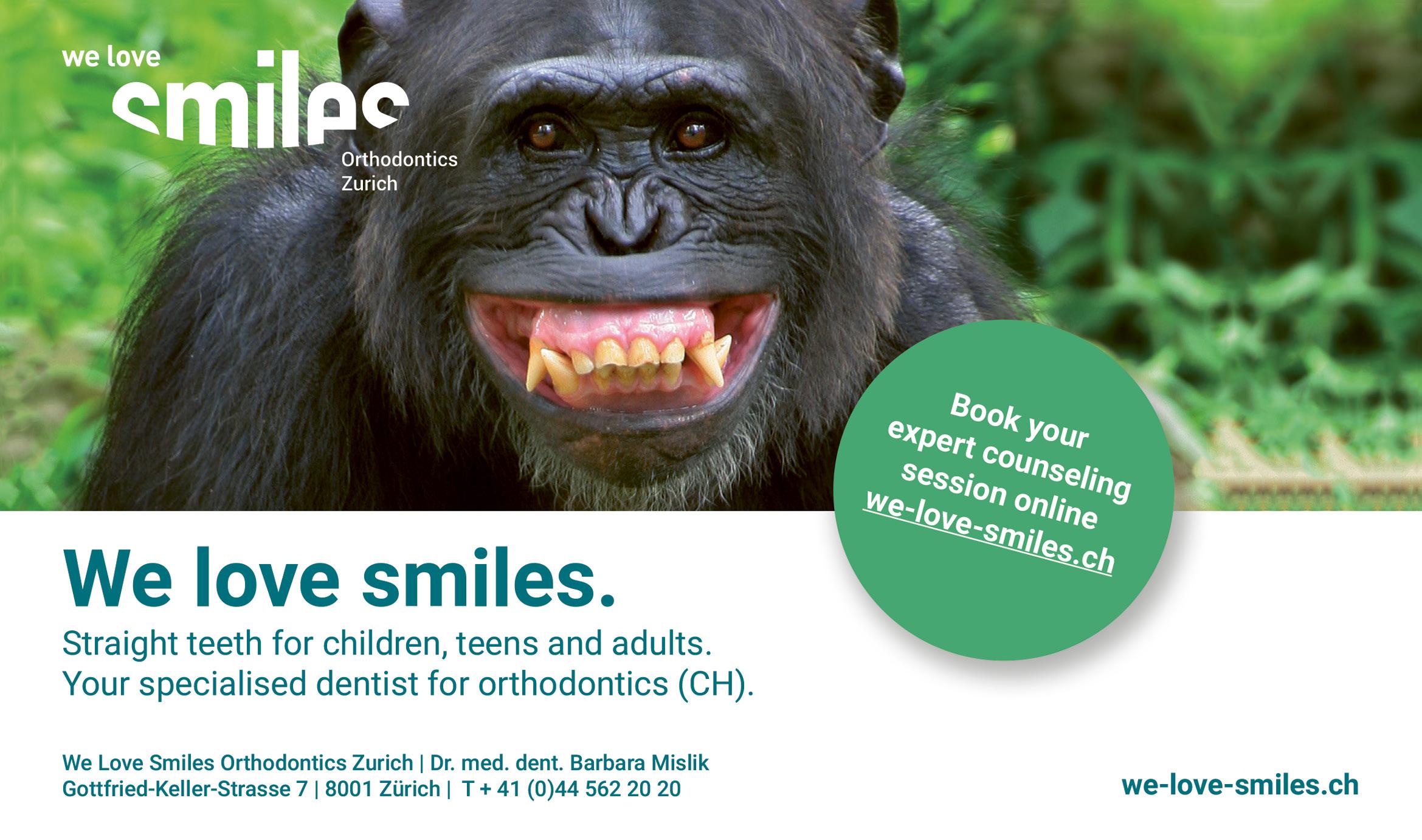
Miguel Burger-Calderon
Class of 2006 (2003-06)
Marten Hoekstra Alumni parent
Elsa Hernández-Donohue ZIS Director (President)
Gil Katzman Class of 1977 (1972-73)
Jennifer Saxe Alumni parent and employee
Brian Scanlon Alumni parent
Renée Zaytsev Class of 2000 (1996-2000)
Michaela Seeger Director of Community Relations (Secretary and Treasurer)



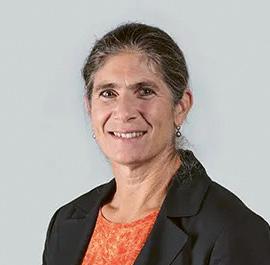
coffees where candidates can ask questions and share their motivations for applying,” explains Lexie. “When we have a shortlist, we will have an interview with a case study and specific questions related to strategic matters. We need to ensure a candidate can leave their parent hat at the door and think about not just the school today but in five or 10 years.”
Being a NED isn’t for everybody, something echoed by Robin. “You need a certain mindset because your job is to scan the whole landscape and to deliver honest and unbiased advice,” she says. “That doesn’t suit everybody. You could be CEO of one of the largest companies in the world but that doesn’t mean it’s a role for you because this is not about execution it’s about advice. Some executives have not learnt those competencies yet or simply don’t like that.”
A NED doesn’t need grey hair, either. Michael Huertas believes that a good non-exec board should feature a diversity of views, including younger members who can offer a different perspective. “The most important thing is to make sure you have the time commitment,” he says. “You have an important role to carry out. It is a commitment for anybody, whether sitting on a school board or working with a major corporation. You need to be committed to a philosophy of contributing to the greater good and, in this case, driving continuous learning.”
“It’s very rewarding when you see you have achieved what you were entrusted to do,” says Gil, who is proud of his achievements in helping bring more Black Americans into managerial positions in Miami hospitality through his work with the Black Hospitality Initiative of Greater Miami. He is now relishing the chance to support ZIS through the Foundation of Zurich International School.
“The school left a really serious impression on me. It was a truly amazing educational experience – the whole environment, the vision and the way it was structured. There wasn’t a single teacher that didn’t have the student’s best interests at heart. It’s a model I have taken into my professional life, and now I want to give it back to ZIS.” Z
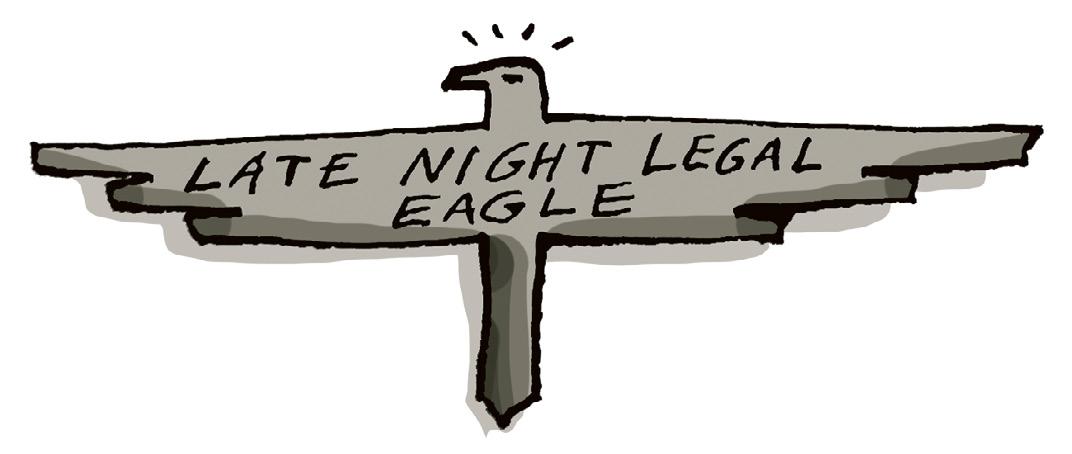

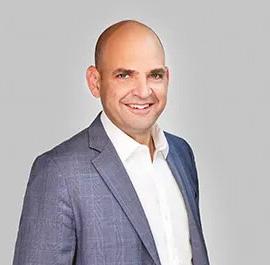
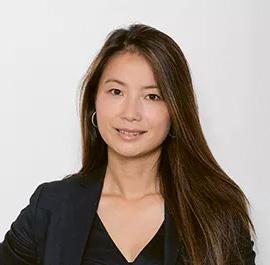



For as long as he can remember, Keegan Bannon, Grade 8, has been interested in history. But even he could never have predicted his specialist subject would turn out to be so unusual.
A keen reader from an early age, Keegan could often be found in the library, reading old magazines and books. Then one day, half-hidden by the library counter, he had an epiphany.
“I found a stack of yearbooks, and it was amazing!” says Keegan. “It was history I could relate to, featuring buildings and people I knew. I started looking for more and more books, going right back to the start of the school in the 1960s.
It was history I could relate to, featuring buildings and people I knew. I started looking for more and more books, going right back to the start of the school in 1963
“The school was quite different then. For instance, there used to be a strict uniform – in the first few years of the school, students had to wear a full suit! Then, in the late 1960s, the dress code severely loosened and, since 1988, it’s really just been guidance rather than a code.”
Appetite well and truly whetted, Keegan began to dig deeper. “The Spinnergut Villa was renovated in the 1990s
A collection of ZIS yearbooks opened up a compelling window on the past for Keegan Bannon.
• Words Megan Welford • Photography Kate Peters
when the underground bit was added. Other things haven’t changed so much, like the teachers – some of them have been here a really long time.
“The older yearbooks, until 2008, were always dedicated to a specific teacher, and often the same names came up – like Fowler Stillman and Ken McKinley for example. But in 2008, the yearbooks for the three schools merged into one, and the dedications stopped. I guess there were too many teachers to thank then.”
Keegan’s growing encyclopaedic knowledge of ZIS history is building him quite a reputation. He was recently invited into Upper School teacher Rob Freisen’s Theory of Knowledge class to help the students find information about old field trips from the yearbooks. “Back in the day, the field trips were to riskier places, like East Germany,” he observes. “I think the students had more responsibility for themselves then.”
The school librarians like to try and catch him out with spot quizzes. “They’ll ask me random questions like, who was the third director of ZIS? It was Peter Mott, of course.”
And last year, he was invited to join Yearbook Club and help produce the 2024 edition, a 60th anniversary special celebrating the school’s opening in 1963. “The theme was the 1960s, so I was able to help with that, especially getting the right look. I helped edit it too, and I took pictures at Turkey Trot and WorldFest. It was fun. I got a discount on the yearbook and an ice-cream with lunch! But mostly I was just happy to be able to share all the stuff I know about ZIS and its history.” Z
Isabel Mullens, Class of 2019 (2004-19) first ran Zurich’s annual festive fun run when she was just three years old – and it helped establish a passion for life.
• Words Jo Caird



Isabel Mullens, Class of 2019 (2004-19), began running early – at just three years old! That was when she first lined up for the Silvesterlauf, Zurich’s annual festive fun run, although she admits her recollections of it are pretty hazy. “I was so young that I’m really remembering it from stories and photos and the family traditions that have been built as I’ve grown up,” she says.
By nine, Isabel had graduated to doing the race solo. “They drop you off at the start line and you’re standing in a pack of other kids your age,” she recalls. “That was a bit scary, but then my Mom and Dad would always be along the course, and we would have a meeting spot at the end.”
The Silvesterlauf isn’t just a race – it’s a full day of winter celebrations. With Isabel, her younger brother Beck (Class of 2021, 2006-21) and parents Brook and Molly (ZIS members of staff and athletics coaches) taking part, the event has always been something of a Mullens family tradition. “It was right before we would end school for winter break and it was a wonderful experience to go into the city and see all of the lights and just enjoy Zurich in the wintertime,” says Isabel.
She remembers the race route itself as a magical journey through Zurich’s festive streets, with Christmas lights twinkling in shop windows and strung up high above the Bahnhofstrasse. “It felt like a whole city event. Along the course, there would be people everywhere,” she says. “You’re wearing a bib with your
name on it so, as you’re running, you have people cheering you on, which created such a lovely atmosphere.”
As Isabel entered Middle School and joined the cross country team, the Silvesterlauf took on a new dimension for her. “The race came at the end of the school cross-country season,” she explains. “I started doing it more competitively, because running was becoming something I was passionate about.”
The festive side of things never lost its lure, however. After crossing the finish line, Isabel remembers, she’d be quickly bundled up against the Zurich cold. Next stop was a steaming mug of hot chocolate and a paper bag of sweet-smelling roasted chestnuts.
Looking back, Isabel appreciates how the Silvesterlauf helped foster her love for running.
“It was a fun holiday celebration, and then it slowly transitioned into a real sporting passion,” she reflects.
“My parents did a wonderful job at introducing this sport that they care so much about to me through these fun events when I was young.”
Though Isabel hasn’t participated in the Silvesterlauf since 2015, the memories remain vivid. Now a consultant at management consultancy Oliver Wyman in New York, she finds that winter runs through urban streets often evoke strong memories. And she hopes that soon the Mullens will come together and run the Silvesterlauf as a whole family again. “I would love to do it as an adult,” Isabel says with a smile. Z
• Interview Clare Thorp
• Photography Ryan Valasek
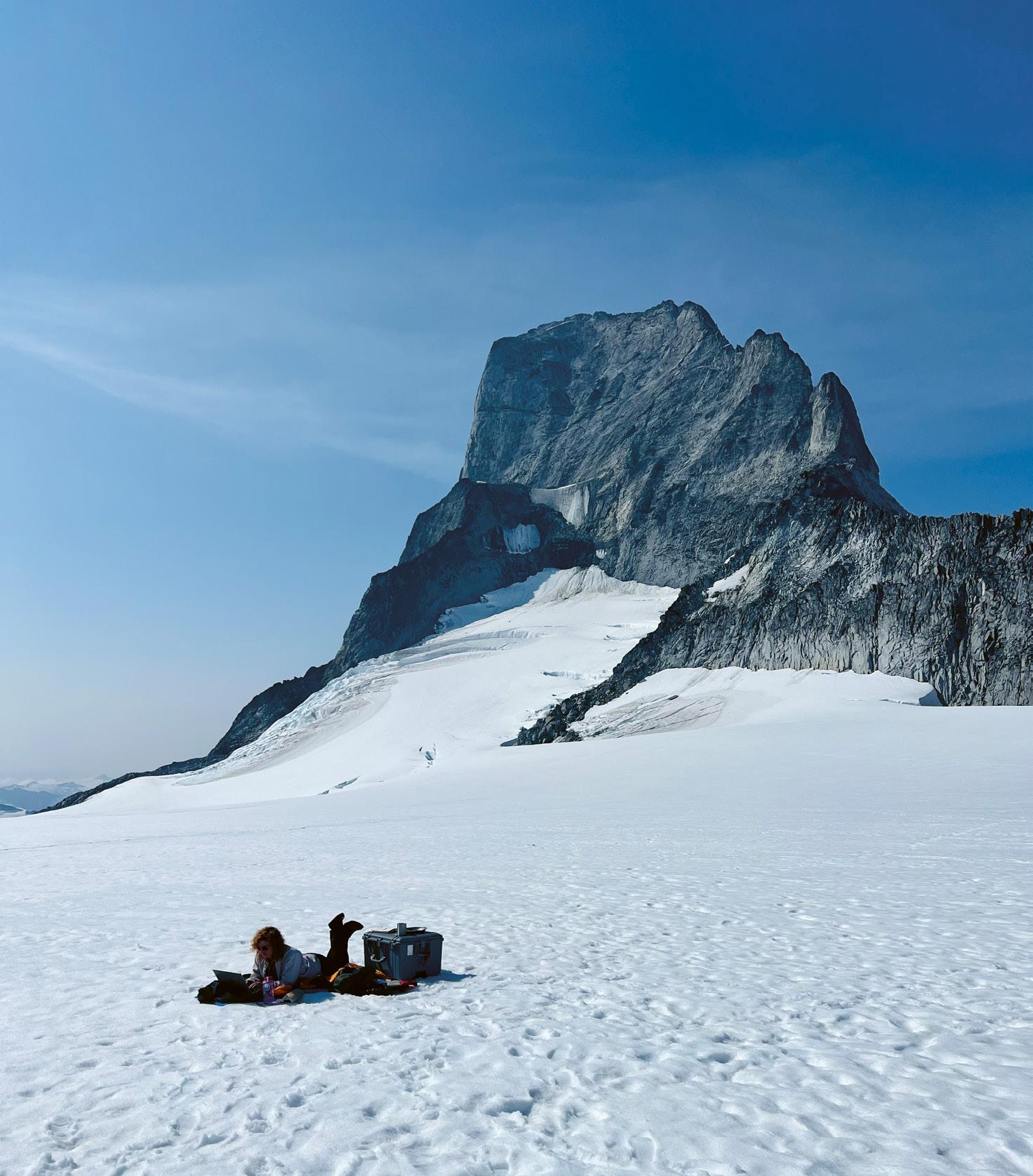
Interviewing American presidents, meeting criminal cults, discussing international terrorism… When you’re making documentaries, there isn’t a typical day at the office. I might be up before sunrise to capture images in the best light of the day, or navigating several levels of security to film an interview at the UN, or be hidden away in a dark room trying to piece together all the images and sounds we have collected.
As a freelance director and producer, I work on all sorts of projects, from feature films and TV series to short films and political campaign ads. The first film I worked on was a documentary about President Gerald Ford. After studying political science and international relations at the College of the Holy Cross in the US, I worked in consulting and lobbying in Washington DC, but wanted to try something different. I saw an advert from a production company looking for a researcher, and my political background helped me get the job. I ended up being made associate producer and interviewed contributors including Henry Kissinger.
I quickly fell in love with the whole process of researching something deeply and talking to the people at the center of the story. It’s important to have curiosity about, and empathy for, experiences entirely unlike your own when telling someone’s story, which is something I was exposed to during my time at ZIS. In an international school you meet people from different cultures and backgrounds. I didn’t realise how unique and special that education was until I moved back to America.
Since then I’ve covered topics including the US gun-control debate, voting rights and the opioid crisis. Right now, I’m working on a beautiful story about the history of whale acoustic science, told mainly through archive material. When developing a film, I look for a real human story at the center. You might believe people need to hear about an important political or social issue, but if there isn’t a human element, the audience won’t necessarily connect with it.
To do that, you need subjects to share incredibly personal experiences, like Slay The Dragon, for example, a film I co-produced about a political activist fighting to preserve democracy in Michigan. I was so grateful for our subject’s vulnerability in telling that story, so we could make a political issue meaningful. My biggest project to date was co-directing a four-part Netflix series, Keep Sweet: Pray and Obey, about the polygamist Fundamentalist Church of Jesus Christ of Latter-Day Saints. It took four years to make and, for me, the best part was that the subjects all felt well-represented. As a storyteller, I don’t think objectivity and compassion are mutually exclusive.
My work can be emotionally draining, so I make sure to do the simple things, like running and eating well. I also make sure to always be taking in some fiction, because so much of my work is very real and sometimes fiction can be more honest than the truth.
The most satisfying part of my job – that I get a finished product that represents all the hard work – is also the most difficult, because it means it’s all over. Finishing a film is always bittersweet: I’m proud, but then it’s onto the next one. Z

